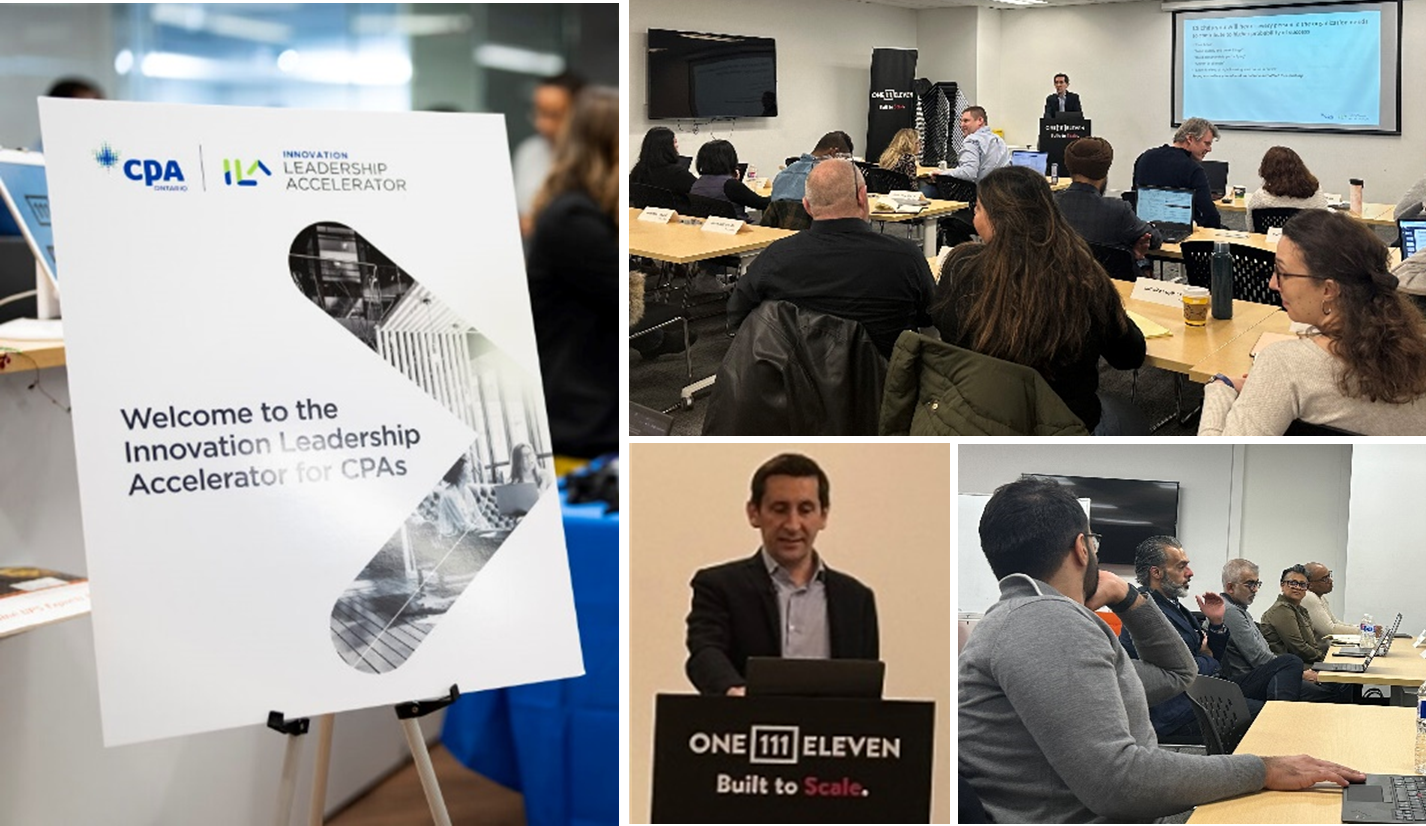The Vital Role of Controllers in the Success of a Startup
Startups fuel the innovation economy’s engine, representing 12% of Canada’s and 16% of Ontario’s GDP and driving Canada’s productivity and prosperity.
CPAs have an essential role in Canada’s innovation economy, bringing a unique set of skills to help drive the commercialization of research and IP and turn Canadian startups and scaleups into the next global success story.
But while there are more than 3,000 startups across Canada, the global failure rate still stands at 90%.
According to Startup Canada’s 2022 Entrepreneur Census, many early-stage founders fall prey to poor risk management, finance-specific challenges, and “information paralysis” (indecision caused by too much, unorganized, or unreliable data).
In a startup environment, expectations for the finance team are high. Their responsibilities are broad and constantly evolving. The team is typically small, likely lacking a depth of CPA expertise, and operates with limited resources while building—not inheriting— processes and operations.
When built to purpose, the controllership function can ensure accountability and fact-based decision making while fostering a culture of transparency and open communication. Driven by high standards and technical expertise, CPA-designated controllers take their responsibility for informed financial decisions, accurate reporting, and transparent governance very seriously.
The Role of Controllership in a Startup Economy
According to Mike Munroe, CPA, CA, and CFO at Viafoura, a CPA controller can steer a startup towards sustainable growth and a “culture of good habits.”
A seasoned finance and operations leader who has supported early-stage companies through senior roles at Clearco, BMO and Deloitte, Munroe weaved his experience with insightful case studies during a session of CPA Ontario’s Innovation Leadership Accelerator (ILA) program in February.
Munroe says that CPAs provide three essential services to early-stage businesses.
First, as controllers, CPAs are “guardians of value creation” that protect a company’s worth by promoting accountable financial practices, tracking execution of business models, and monitoring performance and risk.
Next, they help foster a culture of trust and transparency through frequent and open communication with leadership and employees, serving as a source of data-backed truth to the former and a defender of mission-oriented values, standards, and practices for the latter.
Thirdly, while operating in a fast-paced and optimism-prone environment, controllers are specialists at navigating three types of risk:
- Inherent – external factors that impact company performance, such as supply chain disruptions or a changing regulatory environment.
- Preventable – irrational decisions, inappropriate conduct, or illegal activity.
- Strategic – calculated trade-offs that generate value for investors.
Munroe used WeWork as an example of an over-valued company with an under-performing business model— “an office operations and real estate company being presented as a lifestyle and tech startup,” explained Munroe—with little executive oversight or corporate governance and a lot of debt.
Had WeWork established its core value to investors, tightened the reins on out-of-control spending, and communicated financial performance transparently with employees through an effective controllership function, it might have avoided bankruptcy.
Success is never guaranteed, but the risk of failure can be reduced by specific, rational actions.
Wrong team, investors, or partners |
|
Wasted time and capital on the wrong solutions |
|
|
|
Short supply of capital |
|
Seize Control, See Success
Munroe says that startup culture is characterized by a drive for rapid and exponential growth, with dynamic and novel business models, significant degrees of risk and a correspondingly higher rate of failure.
Many ILA participants shared their own professional experiences, a few of which directly reflected the challenges outlined by Munroe and others which shed light on more uncommon, albeit daily, scenarios.
In other words, the need for an enhanced controllership function in Canada’s startups has never been greater.
Their deep financial knowledge, high ethical standards and expert contributions make all the difference in determining whether a startup ends up being the next WeWork, or a resilient champion of Canada’s innovation economy.
 Mike Munroe, CPA, CA and Viafoura’s CFO, leads CPAs in an ILA session on the controllership function and startups in February 2024.
Mike Munroe, CPA, CA and Viafoura’s CFO, leads CPAs in an ILA session on the controllership function and startups in February 2024.